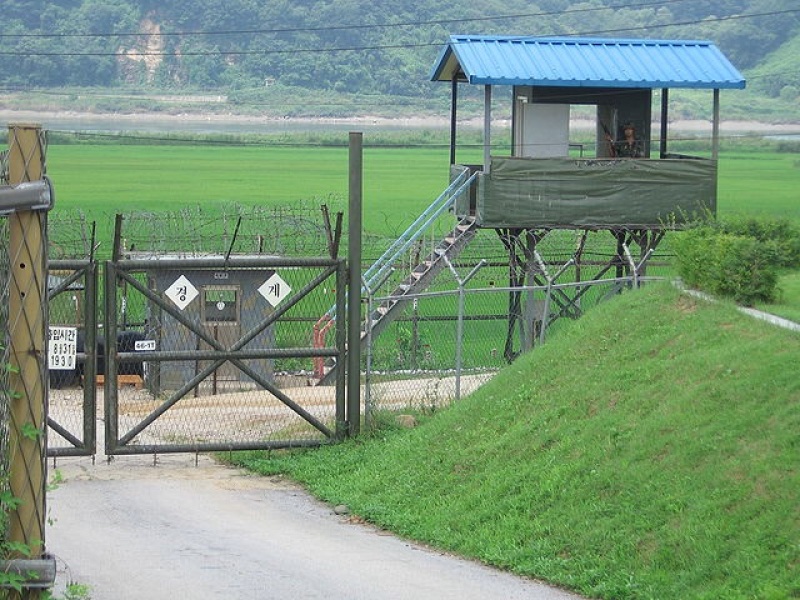
Kim Jong-Un, the communist leader of North Korea declared a "quasi-state of war" on South Korea on Friday, Aug 20. The decision was made hours after South Korea launched dozens of 155-millimeter artillery rounds across the border that divides the two nations. The exchange of fire began on Thursday afternoon when North Korea fired a round, which landed in Yeoncheon, a South Korean border town.
"Commanders of the Korean People's Army were hastily dispatched to the front-line troops to command military operations to destroy psychological warfare tools if the enemy does not stop the propaganda broadcast within 48 hours and prepare against the enemy's possible counteractions," reported the North's Korean Central Television.
There were zero casualties in the exchange. Yonhap News reported that about 60 Yeoncheon residents hid in underground bunkers during that time and about 2,000 residents were evacuated from the town on Thursday. North Korea launched the round when South Korea failed to shut off its propaganda loudspeakers from the southern side of the Korean Demilitarized Zone.
"South Korea will strongly retaliate against any kind of North Korean attacks and the North will have to take all the responsibility for such retaliative actions," said the Ministry of National Defense on Friday.
South Korea began broadcasting on Monday, Aug. 10 after two South Korean soldiers lost their limbs in a landmine explosion. The explosion is perceived by the South to have been caused by the North. Pyongyang denied the allegations. The North and South made an agreement in 2004 to stop broadcasting propaganda through loudspeakers at the border.
The South's broadcast of outside news can be heard by North Korean soldiers and border area residents, which infuriates the North. The North issued a written warning of military action to the South, if it failed to stop the broadcasts within 48 hours. The South has until Saturday, Aug. 22 at 5 p.m.
After the Korean War in 1950-1953, Korea was divided into two nations; the capitalist South and the communist North. The North and South settled the war with an armistice and not a peace treaty. Technically, the war between the North and the South did not end in 1953. As of 2015, there is an estimated 28,500 United States soldiers stationed in the South to deter the North.


















